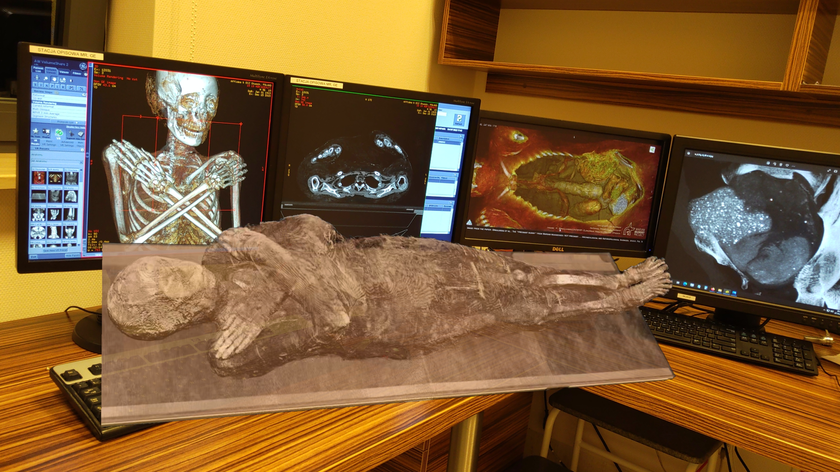Sitting Is Deadly, Mounting Research Reveals

Did you hit the gym today? If so, you probably feel like you deserve a pat on the back. But your efforts may be in vain if you spend the rest of the day sitting down.
A growing body of research suggests sitting down for most of the day can be lethal. It has been linked to an increased risk of heart disease, Type 2 diabetes and death from any cause. And a daily jog may do little to negate the deleterious effects of too much time in a chair.
"The robotic lifestyle of just incorporating 30 minutes of physical activity into your day," and spending the other 23.5 hours idle, "does not produce the healthy profile we're looking for," said Mark Tremblay, director of healthy active living and obesity research at the Children’s Hospital of Eastern Ontario Research Institute.
While much research has focused on the benefits of physical activity, little attention was paid to what people do the rest of the day. Researchers are just beginning to dissect our daily routines to learn how movement, and lack of it, affects our health, Tremblay said.
Being healthy is not just about increasing physical activity, but also decreasing inactivity, he said. People can take small steps in their daily lives to, well, take more steps.
Our culture of "let's sit down and talk about it" needs to become one of "let's walk and talk about it," Tremblay said.
An idle body
Sign up for the Live Science daily newsletter now
Get the world’s most fascinating discoveries delivered straight to your inbox.
An obvious drawback to sitting is that you aren't moving, so the number of calories you burn will be lower than if you were, say, standing up or walking, Tremblay said.
And sitting makes it easy to eat.
"It's much more difficult to eat if you're playing tennis," Tremblay said.
A sedentary lifestyle can also have less visible effects. Sitting takes a load off your skeleton and muscles and over time, this may weaken them, Tremblay said.
In addition, if you don't use your muscles after a meal, they don't take up sugar from the blood as they should, said Frank Booth, a professor of physiology at the University of Missouri-Columbia. This means most of the sugar from your meal will stay in your blood. Over time, this may put you at risk for high blood glucose levels, a precursor to Type 2 diabetes, Booth said.
Studies on humans and animals also suggest being idle can lead to harmful changes in your metabolism, Tremblay said, prompting higher blood fat levels and lower levels of "good" cholesterol.
Lethal consequences
A 2010 study of more than 120,000 people in Australia found that the more time people spent sitting, the more likely they were to die of any cause over the study period.
Another study, published in January, found that people who spent more than 4 hours sitting in front of a TV or computer each day were 125 percent more likely to have heart problems over a 4-year period.
And in both of those studies, the amount people exercised made no difference.
Some preliminary evidence suggests sedentary behavior may have an impact on our mental health as well as our physical health. Studies of children have found less sedentary kids have better academic scores and higher self-esteem, Tremblay said.
Other work suggests a link between inactivity and depression in adults. However, more rigorous studies need to be done to validate the link. For instance, it's not known whether adults who exercise for 30 minutes a day, but sit down for the rest of the time, would also be at greater risk of depression, Booth said.
And researchers need to find out if the type of activity you do while sitting makes a difference, Tremblay said. Studies suggest tasks that require a high level of cognitive engagement, such as reading or playing a board game or a musical instrument, have less adverse health outcomes, Tremblay said. While it's not clear why this might be, he noted there's less opportunity to snack if your hands are occupied.
Can you get rid of your chair?
Revising our culture of sitting may be difficult.
"We fundamentally go to what's easiest and most convenient," Tremblay said. "What we need to do is introduce inconvenience."
Booth said people might not have control over whether they can have a standing desk at their office and might not be able to walk or bike to work if they live too far away, or in a bad neighborhood.
"You can tell someone that they need to not sit all day," Booth said. "But the rules may not allow them to get out and do it."
Tremblay said a message of "sit less" may be more palatable to some than one of "move more."
"This is a softer sell — something they can build into their lifestyle," Tremblay said.
To decrease your chair time, Tremblay recommends you look at your day and ask yourself: "Is it necessary to sit?"
"Could you bike or walk to work? When you're at work, are there opportunities to stand?" If you can't get a standing desk, you might make a reminder to yourself to get up and move every 15 minutes or so, Tremblay said.
"There are a variety of things that can be done," Tremblay said. "First and foremost is we need to bring this to people's attention."
Pass it on: Sitting down all day may be bad for your health, regardless of whether you exercise or not.
This story was provided by MyHealthNewsDaily, sister site to LiveScience. Follow MyHealthNewsDaily staff writer Rachael Rettner on Twitter @RachaelRettner.

Rachael is a Live Science contributor, and was a former channel editor and senior writer for Live Science between 2010 and 2022. She has a master's degree in journalism from New York University's Science, Health and Environmental Reporting Program. She also holds a B.S. in molecular biology and an M.S. in biology from the University of California, San Diego. Her work has appeared in Scienceline, The Washington Post and Scientific American.











